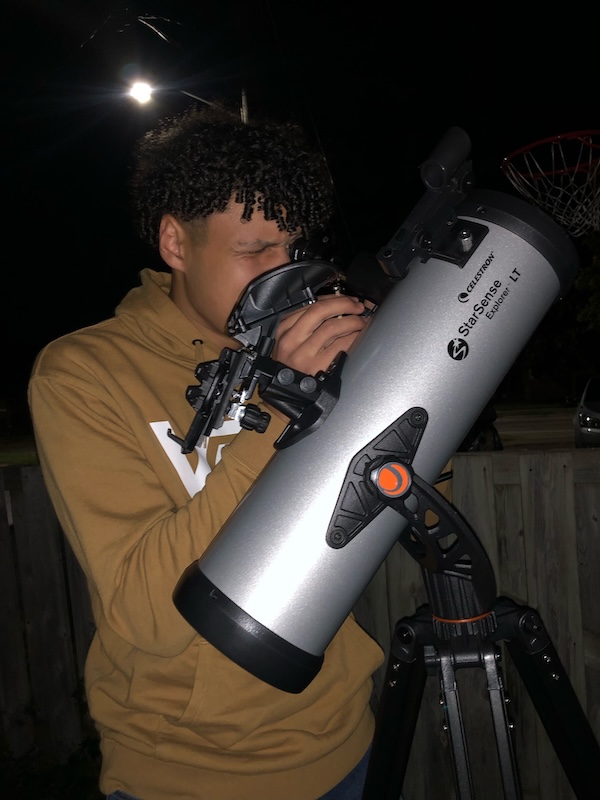We have our whole lives to learn and pursue our interests and so do our children.
I’ve been mentoring some new local homeschool families, particularly in the areas of building community and local opportunities. I’m noticing some words come up as they start out like, “I want to make sure it’s enough,” “I want to offer them (the kids) the best experience I can” and “I’m trying to make sure I have the materials they need.”
It might seem like the words “enough” and “best experience” would be the ones jumping out, but something happened the other night for me that made the word “I” stand out even more.
These parents, along with most home ed parents, and certainly often myself, come from a place of “I” in that we have a sense that we’ve taken on this responsibility and we need to deliver. And to a degree, we do. We want very good things and a full life for our children and we know our role is foundational. (Now the role of extended family and community and the question of whether parents need to do it all themselves is another conversation, I think, but for the purposes of this post, I’m looking at learning and opportunity within the dynamic of the parent and child).
That being said, there is pressure. Curricula companies can each tell you why their particular manipulatives or art supplies or literature volumes are the key to solid learning! You, the parent, can buy these resources to offer your children. Worldschooling sources can hype up the pricelessness of travel and cultural experiences and tell you how you, too, can figure out this lifestyle for your family. Except that I don’t believe we have to figure it out – the world travel or the popular math manipulatives. As parents, we are foundational with our presence, our love, our encouragement and curiosity, not because we’re on a quest to be and offer everything.
This weekend past, S had the first night of clear-ish sky to try his new telescope out and as I went to bed after midnight, he was still outside.
And it hit me. He’s pursuing his own interest and I’ve not had much to do with it. He’s always been interested in the night sky and astronomy and yes, when they were younger I bought a beautiful space encyclopedia and we checked out a lot of the internet links over time. Several years ago I purchased Night Sky journals. I’ve always tended to naturally point out the moon and constellations. My husband has taken us to prime spots to watch meteor showers. He also introduced us all to the Skyview Lite app which S has always used a lot, even casually during the day to orient where we are in relation to constellations and other planets. But I’ve never bought a telescope.
In our first year of homeschooling, I was given (without having asked ☺️) the thoughts and opinions of many people. They ranged along the regular spectrum – socialization, reading, writing, math, concern with children being too coddled and sheltered, us not supporting the public system by not being there, lack of access to sports and higher education, finances, my career opportunities and choices, etc.
One line from someone went something like this: “There’s no way to have a proper amount of equipment in a family home to ensure an adequate science education.”
So first of all, there is. 😁 There is a way. Even if we’re looking at the most traditional of science education and a family is following their school board’s path, it is possible to look ahead year by year and purchase the equipment. It might not be financially feasible or desirable for everyone, but accessing most pieces of equipment is possible by either loan or purchase.
Looking back on this comment, I realize that it’s rooted in schooled assumptions and thinking. Because the person had likely not used microscopes or Bunsen burners much, if at all, outside of school, they might have associated their existence with school only – something specialized to formal education and not available to the general public.
It’s also rooted in assumptions about home. It reflects the thought that home is for unwinding and decompressing only, not for serious learning or pursuits – a place to return to after finishing the real learning of the day, not one where deep exploration actually happens at any time of day (or night).
Even though I doubted the truth of that early comment and prioritized our other values above science equipment anyway, there was that little insecurity niggling at the back of my mind that came to the surface every now and again. Was I actually able to provide my kids with everything? Did I have the energy? Money? Was I running out of time to expose them to all the wonderful things and to expand upon their own gifts and curiosities? So, you see, it was a question of enough, but also a question of I … me and my responsibility, without giving much thought to children’s responsibility as their own selves with a whole future to explore and learn.
Moving along from a conventional school mindset, what about a whole life learning/unschooling/self-directed way of thinking?
People often associate being an unschooling parent with leaning into a child’s interests and there may be an assumption that this means accessing ALL the things. It’s not uncommon to see a short, generic definition of unschooling that goes something like this:
Unschooling refers to a type of homeschooling in which the child decides what they are interested in learning and the parent then gathers the materials and opportunities to help them learn more deeply about that particular topic.
That’s just my own wording, a mish-mash of things I’ve seen here and there, but it underscores what many see as a primary principle of unschooling, which is that it’s a parent’s job to eagerly wait for interests and then provide equipment and opportunities. I think because many unschool parents worry that they are not doing enough, they might really lean hard into this one. An interest appears and mountains are moved to get all the resources and experiences, buy the things, go to the places.
We might not always be able or even choose to do that and what I’m noticing for us is that it’s fine! It’s so freeing to see my adult kids able and happy to follow their interests, often in areas and ways I know little about. I didn’t have to be or provide all of the things. My kids are grown and pursuing things on their own that we didn’t as a family. They are learning things and getting to do things as adults that they didn’t as children.
In the past week, I’ve been updated about one’s ongoing travelling and living abroad – he’s headed back out of the continent next week. I’ve seen the new reptile another has at their house and listened about a style of professional art supplies being ordered that I’d never heard of. Living abroad and having reptiles weren’t things they had access to as kids but it hasn’t squashed their own drive. New knowledge comes up about particular art styles and supplies but there’s no resentment that these weren’t introduced earlier or purchased by us.
And then there’s the telescope. Back to the telescope. As I watched the joy and just his pure amazement at the universe that came from experimenting with it, a thought rushed through my mind that went something like this: “I didn’t know he’d be this engaged. Why didn’t we ever buy him a telescope?”
He isn’t having this thought though, I’m quite sure. He happily researched different options and price ranges over some period of time and decided what he’d like and felt willing to pay. He was enthusiastic to invite me outside and show me how it worked and what he was noticing. He appreciated my encouragement, but there was no vibe that I should have bought him one or learned all the information so that he could learn – he sees learning and pursuing interests as his own responsibility and opportunity.
Maybe the word ‘opportunity’ brings me to the heart of things, which is that our children have a lifetime to pursue opportunities. We, as parents, cannot possibly think of or extend every single possibility to our children. We do not have to buy or offer or think of it all. While our job in guiding, facilitating and encouraging is an incredibly important one, we don’t have to check every box. We can’t. It’s probably good to leave space and yes, even gaps – room to to be curious about what other possibilities there are and ways to go about things. Learning and pursuing interests ultimately comes from the person themselves.
I haven’t been sure how to wrap this up except to say that it’s serving me much better to be supportive and brainstorm, as asked, alongside my adult kids with any “gaps” they are navigating (we ALL have gaps in skill and knowledge that pop up as we go about life and pursue the things we need and want to) than to blame either them or myself, and it’s honestly a delight to see them diving into new things of their choice and finding their way as they go.
We don’t have the ability to cover all the bases and there’s something kind of cool about that because when we let go of the belief that we can, it actually broadens the scope of potential and possibility.
Enjoy this post? Please share.


Love this. So encouraging to see a glimpse into some of your interactions with your adult children. Seeing them continuing to pursue interest and passions and build learning as young adults. So true that learning is life long. And taking the pressure off ourselves to provide “ALL” the opportunities before they become adults…like you say, leaves space and room. Space for them to actually dive deeper into things they are truly passionate about which will then help guide them and inform the rest of their future learning as well.
Thank you, Kendel! I’m sorry it took me so long to see your comment. I’m glad it was encouraging. I’ve found it really interesting (and freeing!) to think about.